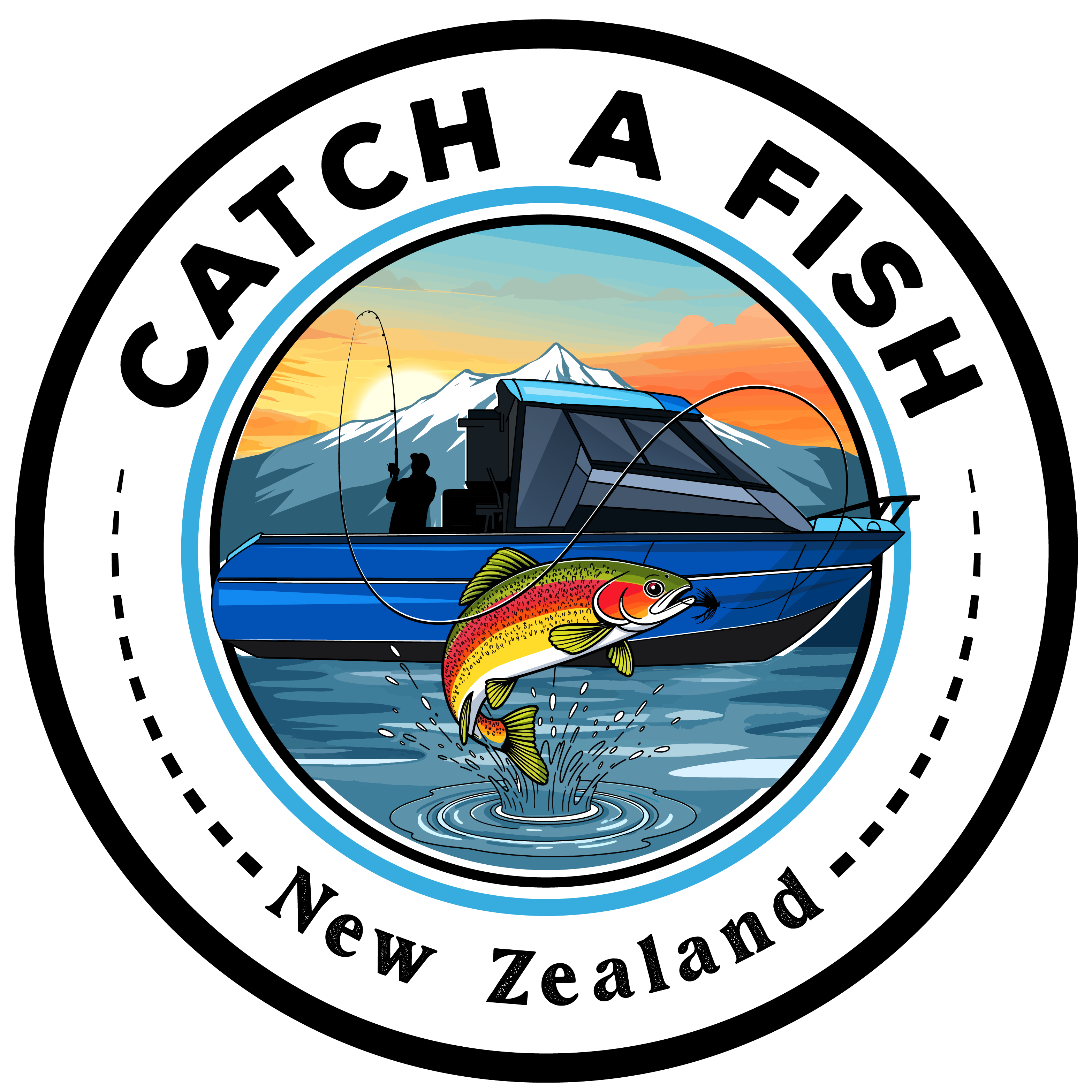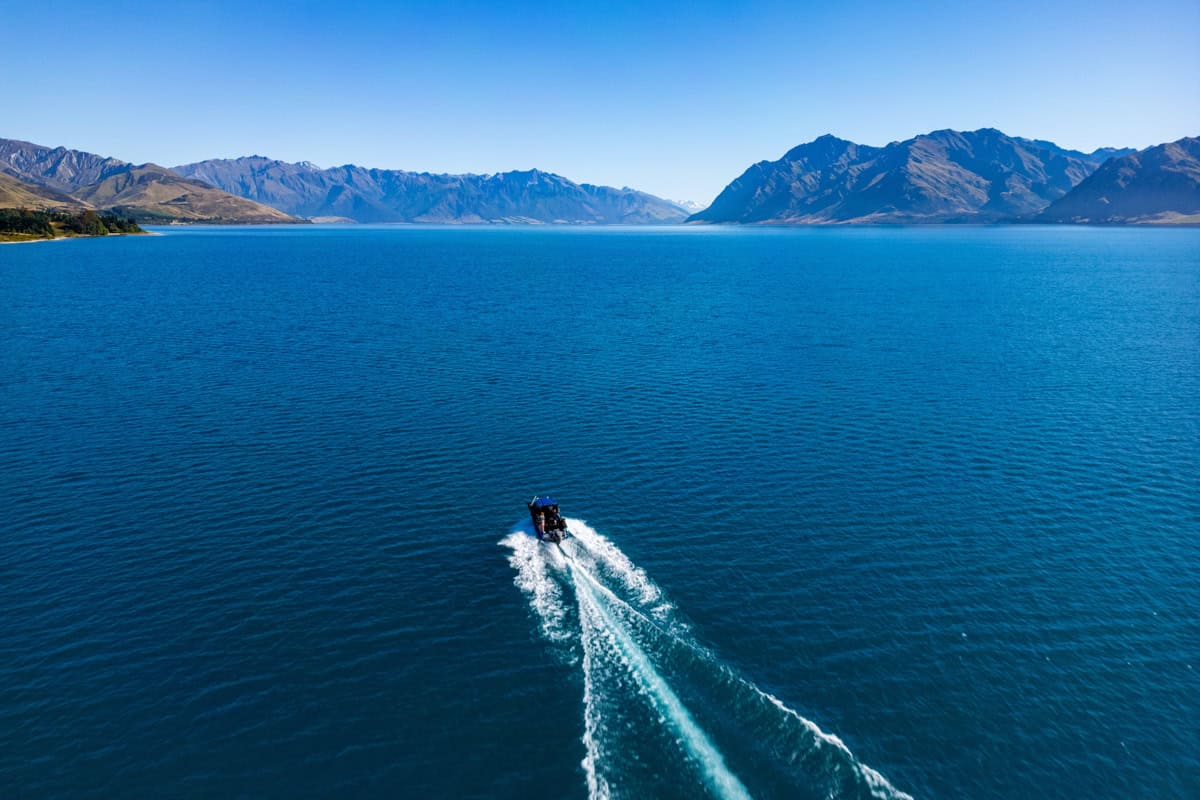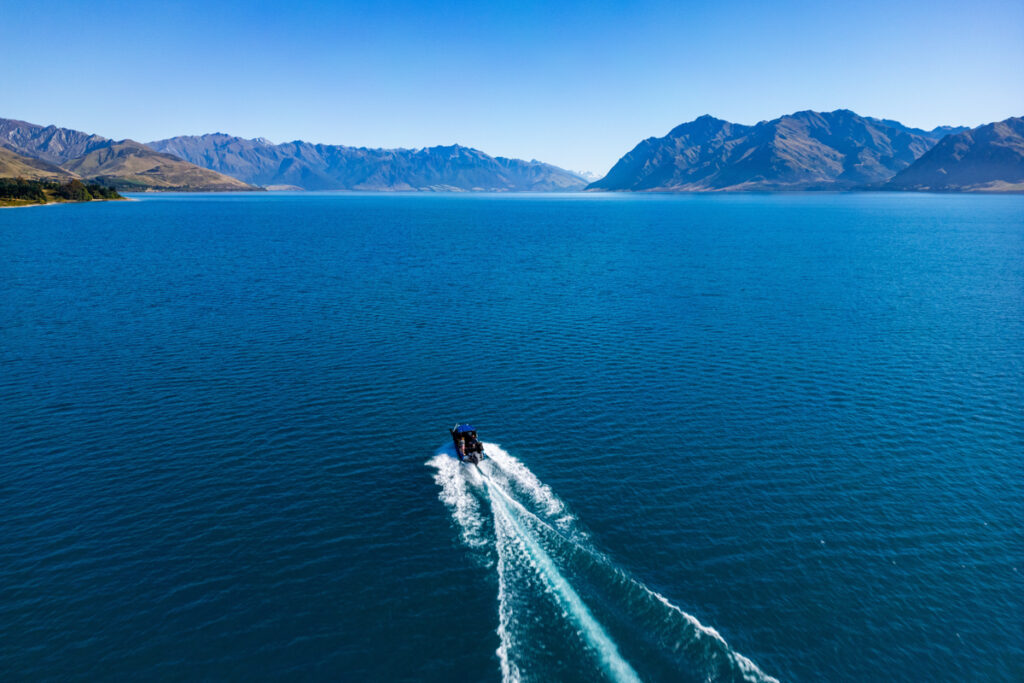New Zealand is a premier fishing destination, offering pristine lakes, diverse fish species, and breathtaking scenery. Among the country’s best fishing locations are Lake Wanaka, Lake Wakatipu, and Lake Hawea, all located in the picturesque Queenstown Lakes District. These lakes are not only renowned for their trout fishing but also provide excellent opportunities to catch Chinook salmon—a favorite among anglers for their size, strength, and flavor.
At Catch a Fish Ltd, we specialize in fishing charters on these iconic lakes, providing memorable and successful experiences for anglers of all skill levels. This blog delves into the history, geology, and fishing opportunities of these lakes, including their thriving salmon populations.
Why Fish in New Zealand’s Lakes?
New Zealand’s lakes are legendary among anglers for several reasons:
- Diverse Fish Species: You can target rainbow trout, brown trout, and Chinook salmon.
- Unmatched Scenery: Towering mountains, glacial waters, and serene environments make fishing here a feast for the senses.
- Rich Histories: Each lake has a fascinating story of how it was formed and how it supports fish populations today.
The Geology and History of Lake Wanaka, Wakatipu, and Hawea
Lake Wanaka: Shaped by Ice and Home to Salmon
Formation and History
Lake Wanaka, the fourth-largest lake in New Zealand, spans approximately 192 square kilometers. Its origins trace back to the last Ice Age, around 10,000 to 20,000 years ago, when advancing glaciers carved deep valleys that filled with water upon retreat.
Historically, the lake was a vital resource for Māori communities, who used it for fishing and gathering resources. Today, it’s a popular destination for recreational fishing, particularly for trout and salmon.
How Its History Shapes Modern Fishing
The glacial origins of Lake Wanaka have created deep, cold waters that are perfect for sustaining healthy populations of rainbow trout, brown trout, and Chinook salmon. The nutrient-rich environment supports the small fish and aquatic insects that these larger species feed on.
Lake Wakatipu: The “S-Shaped” Salmon Haven
Formation and History
Lake Wakatipu, New Zealand’s longest lake at 80 kilometers, was also formed during the Ice Age. Its unique “S” shape is the result of tectonic activity and glacial sculpting over thousands of years.
According to Māori legend, the lake was formed when a giant ogre named Matau was burned, creating the deep basin. This mythical story adds to the lake’s mystique and charm.
One of Lake Wakatipu’s most fascinating features is its seiche, or “breathing effect,” where the water level rises and falls by about 20 centimeters every 25 minutes due to atmospheric pressure changes.
How Its History Shapes Modern Fishing
Lake Wakatipu’s deep waters and cold temperatures are ideal for Chinook salmon, which thrive at depth. The seiche effect circulates nutrients throughout the lake, contributing to a healthy ecosystem that supports salmon and trout populations.
Lake Hawea: A Coldwater Refuge for Trophy Fish
Formation and History
Lake Hawea, covering 141 square kilometers, is one of New Zealand’s most scenic and tranquil fishing destinations. Like the other lakes, it was carved by glaciers during the Ice Age. In the mid-20th century, its water level was raised by 20 meters to support hydroelectric power, altering its shoreline and creating new habitats.
Historically, the lake was a key resource for Māori, who traveled through the area for fishing and gathering.
How Its History Shapes Modern Fishing
Lake Hawea’s colder waters and unique depth profiles make it an excellent habitat for Chinook salmon and large trout. The variation in temperature and depth attracts salmon to specific areas, making it a prime spot for trolling.
Fishing Opportunities: Trout and Salmon in All Three Lakes
Fish Species Overview
All three lakes support thriving populations of rainbow trout, brown trout, and Chinook salmon. Each species offers a unique challenge and reward for anglers.
Rainbow Trout
- Characteristics: Known for their vibrant colors and energetic fights, rainbow trout are common in all three lakes.
- Size: Typically 1-3 kg, with larger specimens reaching 4+ kg.
- Best Techniques:
- Trolling: Use brightly colored lures to mimic prey.
- Casting: Target areas near the shoreline with spinning gear.
Brown Trout
- Characteristics: Larger and more elusive, brown trout are a rewarding catch.
- Size: Commonly 2-5 kg, with trophy fish exceeding 10 kg.
- Best Techniques:
- Fly Fishing: Effective near river mouths.
- Trolling: Use natural-colored lures or live bait.
Chinook Salmon
- Characteristics: Known as “king salmon,” Chinook are prized for their size, strength, and flavor.
- Size: Ranges from 3-8 kg, with some exceeding 10 kg.
- Best Techniques:
- Deep Trolling: Use downriggers to reach their preferred depths.
- Casting: Heavy lures work well in deeper areas.
Seasonal Insights for Trout and Salmon
Each lake offers year-round fishing opportunities, but the best times vary by species:
- Spring: Trout are active near the surface, making trolling and casting effective.
- Summer: Salmon thrive in deeper waters; trolling is highly productive.
- Autumn: Trout feed aggressively in preparation for winter, ideal for fly fishing.
- Winter: Larger salmon and trout are found in deeper areas, perfect for deep trolling.
Why Salmon Thrive in New Zealand’s Lakes
Salmon were introduced to New Zealand in the late 19th and early 20th centuries and have adapted remarkably well to the cold, deep waters of these lakes. Their life cycle involves migrating between rivers and lakes, where they feed and grow before returning to rivers to spawn. This creates opportunities for anglers to target large, healthy fish throughout the year.
FAQs About Fishing in These Lakes
- Do All Lakes Have Salmon?
Yes, Lake Wanaka, Lake Wakatipu, and Lake Hawea all have healthy Chinook salmon populations.
- What’s the Best Time to Catch Salmon?
Summer and winter are peak seasons for salmon fishing, with fish moving to deeper waters in warmer months.
- Do I Need Special Gear for Salmon?
At Catch a Fish Ltd, we provide all necessary equipment, including rods, reels, and downriggers for deep trolling.
Why Choose Catch a Fish Ltd for Your Fishing Adventure?
At Catch a Fish Ltd, we offer expert-led fishing charters on Lake Wanaka, Lake Wakatipu, and Lake Hawea. Here’s what makes us the top choice for anglers:
- Experienced Guide: Skipper Oliver Garland knows the best spots and techniques for targeting trout and salmon.
- Eco-Friendly Practices: Our electric trolling motor ensures a sustainable and peaceful experience.
- Premium Equipment: We provide high-quality gear tailored to local conditions.
- Small Groups: Enjoy personalized attention and support.
Book Your Salmon and Trout Adventure Today
If you’re ready to experience the thrill of fishing for trout and salmon in New Zealand’s iconic lakes, Catch a Fish Ltdis here to make your trip unforgettable. With expert guidance, stunning scenery, and top-tier gear, we’ll help you create memories on the water that last a lifetime.
Contact us now to book your fishing charter and start planning your adventure on Lake Wanaka, Lake Wakatipu, or Lake Hawea.



